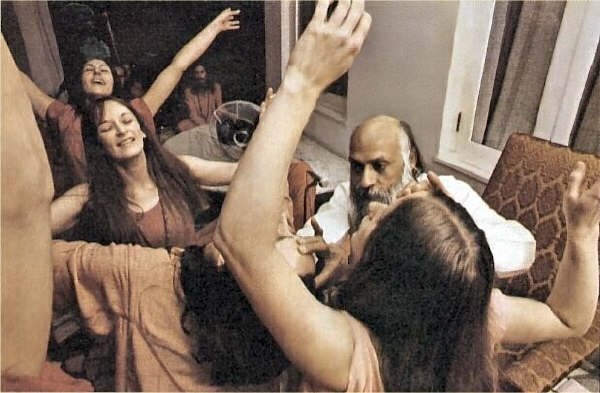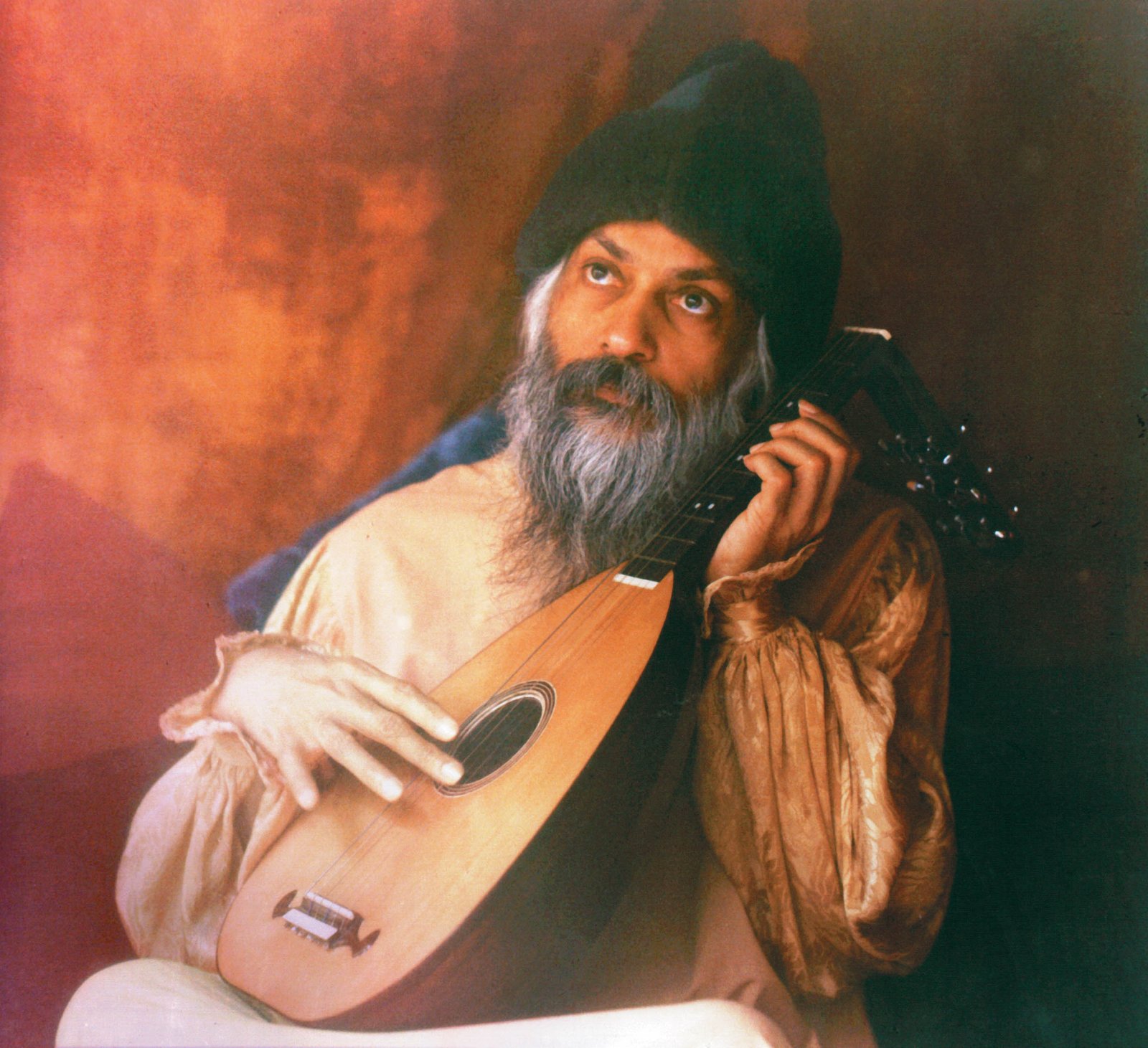I WILL SPEAK ON CHRIST, but not on Christianity. Christianity has nothing to do with Christ. In fact, Christianity is anti-Christ — just as Buddhism is anti-Buddha and Jainism anti-Mahavir. Christ has something in him which cannot be organized: the very nature of it is rebellion and a rebel]ion cannot be organized. The moment you organize it, you kill it. Then the dead corpse remains. You can worship it, but you cannot be transformed by it.
You can carry the load for centuries and centuries, but it will only burden you, it will not liberate you. That's why, from the beginning, let it be absolutely clear: I am all for Christ, but not even a small part of me is for Christianity. If you want Christ, you have to go beyond Christianity. If you cling too much to Christianity, you will not be able to understand Christ. Christ is beyond all churches.
Christ is the very principle of religion. In Christ all the aspirations of humanity are fulfilled. He is a rare synthesis. Ordinarily a human being lives in agony, anguish, anxiety, pain and misery. If you look at Krishna, he has moved to the other polarity: he lives in ecstasy. There is no agony left; the anguish has disappeared. You can love him, you can dance with him for a while, but the bridge will be missing. You are in agony, he is in ecstasy — where is the bridge?
A Buddha has gone even farther away. He is neither in agony, nor in ecstasy. He is absolutely quiet and calm. He is so far away that you can look at him, but you cannot believe that he is. It looks like a myth — maybe a wish fulfillment of humanity. How can such a man walk on this earth, so transcendental to all agony and ecstasy? He is too far away.
Jesus is the culmination of all aspiration. He is in agony as you are, as every human being is born — in agony on the cross. He is in the ecstasy that sometimes a Krishna achieves: he celebrates; he is a song, a dance. And he is also transcendence. There are moments, when you come closer and closer to him, when you will see that his innermost being is neither the cross nor his celebration, but transcendence.
That's the beauty of Christ: there exists a bridge. You can move towards him by and by, and he can lead you towards the unknown — and so slowly that you will not even be aware when you cross the boundary, when you enter the unknown from the known, when the world disappears and God appears. You can trust him, because he is so like you and yet so unlike. You can believe in him because he is part of your agony; you can understand his language.
That's why Jesus became a great milestone in the history of consciousness. It is not just coincidental that Jesus' birth has become the most important date in history. It has to be so. Before Christ, one world; after Christ, a totally different world has existed — a demarcation in the consciousness of man. There are so many calendars, so many ways, but the calendar that is based on Christ is the most significant. With him something has changed in man; with him something has penetrated into the consciousness of man. Buddha is beautiful, superb, but not of this world; Krishna is lovable — but still the bridge is missing. Christ is the bridge.
Hence I have chosen to talk on Christ. But remember always, I am not talking on Christianity. The Church is always anti-Christ. Once you try to organize a rebellion, the rebellion has to be subsided. You cannot organize a storm — how can you organize a rebellion? A rebellion is true and alive only when it is a chaos.
With Jesus, a chaos entered into human consciousness. Now the organization is not to be done on the outside, in the society; the order has to be brought into the innermost core of your being. Christ has brought a chaos. Now, out of that chaos, you have to be born totally new, an order coming from the innermost being — not a new Church but a new man, not a new society but a new human consciousness. That is the message.
And these words from the gospel of St. John — you must have heard them so many times, you must have read them so many times. They have become almost useless, meaningless, insignificant, trivial. They have been repeated so many times that now no bell rings within you when you hear them. But these words are tremendously potential. You may have lost the significance of them, but if you become a little alert, aware, the meaning of these words can be reclaimed. It is going to be a struggle to reclaim the meaning… just like you reclaim a land from the ocean.
Christianity has covered these beautiful words with so many interpretations that the original freshness is lost — through the mouths of the priests who are simply repeating like parrots without knowing what they are saying: without knowing, without hesitating, without trembling before the sacredness of these words. They are simply repeating words like mechanical robots. Their gestures are false, because everything has been trained.
Once I was invited to a Christian theological college. I was surprised when they took me around the college. It is one of the greatest theological colleges in India: every year they prepare two hundred to three hundred Christian priests and missionaries there — a five-year training. And everything has to be taught: even how to stand on the pulpit, how to speak, where to give more emphasis, how to move your hands — everything has to be taught. Then everything becomes false, then the person is just making empty gestures.
These words are like fire, but through centuries of repetition, parrot-like repetition, much dust has gathered around the fire My effort will be to uncover them again. Be very alert because we will be treading on a well-known path in a very unknown way, treading on very well-known territory with a very different, totally new attitude. The territory is going to be old. My effort will be to give you a new consciousness to see it. I would like to lend you my eyes so that you can see the old things in new light. And when you have new eyes, everything becomes new.
OSHO



